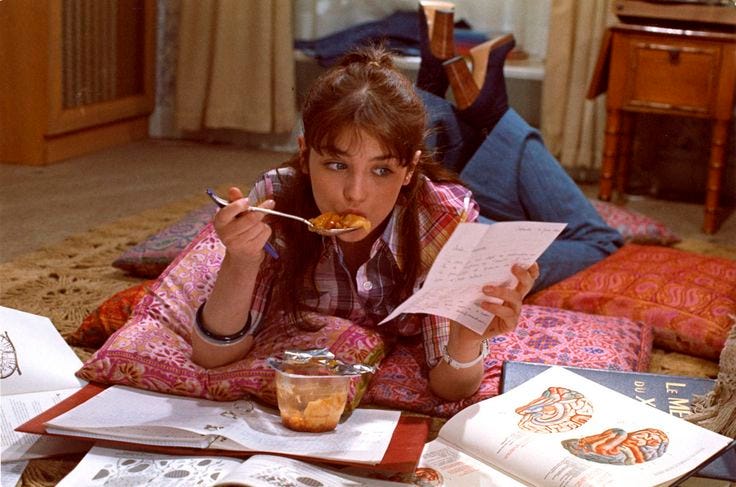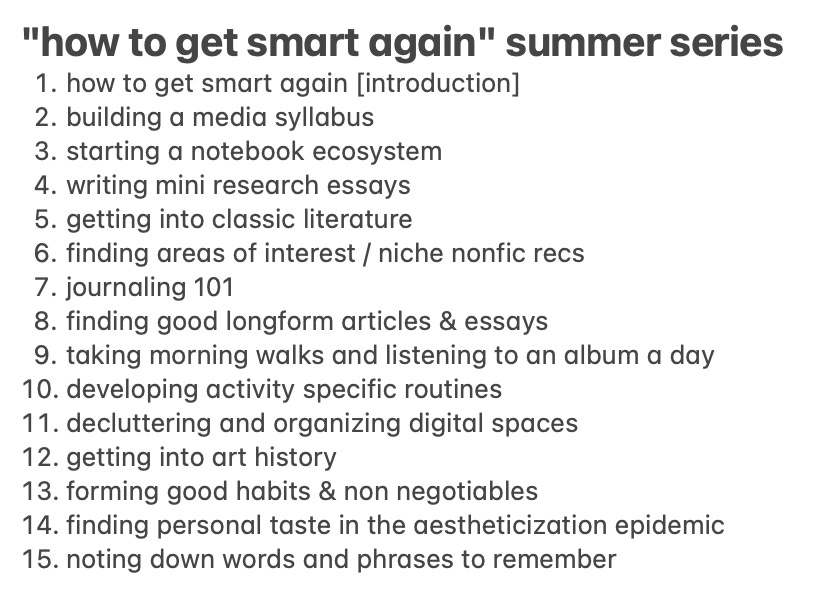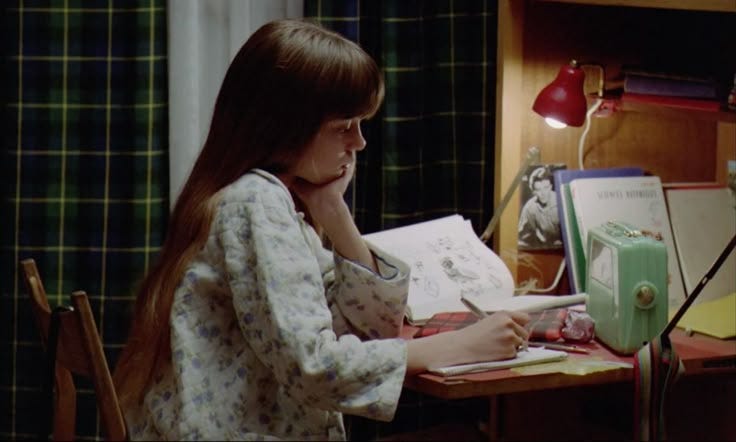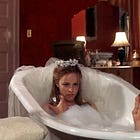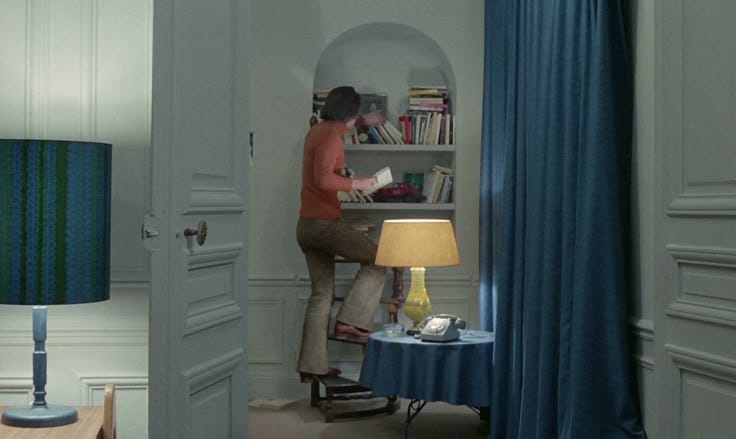how to get smart again: building a media syllabus
battling the brainrot pandemic: how to find good media & all the movies and books i want to watch/read or revisit
this is a part of my spring into summer reset series. You can read part 1 for free here, and the rest is paid! Here is the lineup:
The humanities isn’t dead. I can promise you at least that much. Yet, it is difficult to ignore the copious amounts of articles being published every day, reporting the decline in humanities majors, the increase of cheating in college, or how humanities may not survive the era of artificial intelligence. In the age of generative artificial intelligence hijacking and taking over actual art, humanities sometimes feels like a vestigial afterthought in today’s society.
The convenience epidemic of immediately going to ChatGPT or whatever AI site as the first line of defense has diminished our ability to create. Why would we, if we can ask a machine to generate new content for us at the click of our fingers Never mind that it’s causing irreversible damage to our brains and the climate. It saved you two seconds of having to use your brain. It saved you ten seconds from having to think of a reply to an email. It saved you an hour of brainstorming for an essay due for class.
My post on how to get smart again, which resonated with so many of you, was largely born from a personal reason that I wrote about a few days ago in my postcard. For the last few years, I’ve been struggling with anticipatory grief while watching my grandpa slowly slip away due to Alzheimer’s. While the disease is very widespread, it is a uniquely terrible experience to see someone you love and are so familiar with, morph into someone you don’t really recognize anymore. He was a professor for most of his life and always pushed himself to learn new things. When I was younger, he used to tell me that one of the best things about life was that you never run out of new material to learn and absorb, that even at his old age, he still felt young in the face of new information. After he retired, he took up painting because it was something he had always wanted to try out.
“my grandpa is sick and i’ve been feeling numb. we went to go see him, a man who dedicated his life to academia, who was a professor for fifty years, now someone who has a tabula rasa for a mind. i’ve been watching him slip away for a few years now, i’ve been losing him before i actually lose him. it’s the pretense of grief, the anticipation of the devastation that will happen because such is life; death exists because life exists and there always must be an equilibrium of sorts, right? at the nursing home, i locked myself in a bathroom stall and tried to manufacture the feeling before i felt it, anticipating it like some earthquake simulation. but i’ve never really lost anyone close to me and i imagine that trying to know exactly how it feels is exactly how a blind person feels trying to imagine color.”
One of the last conversations I had while he was somewhat lucid was oddly about the book that I was reading for a college class, which happened to be The Brothers Karamazov. I never even knew he had read it, but apparently he had in his early thirties and it was a favorite of his. Good books spark good discussion, and we ended up talking about the book for an hour or so, and it was one of the most memorable conversations I’ve ever had in my life. We ended up exchanging book recommendations and I was prepared to visit him the next summer armed with a plethora of books that I was so sure he would enjoy. I never got to give it to him because his Alzheimer’s took a sharp turn for the worse by the next spring.
When I visited him with my family a few weeks ago, he could not talk. I found myself missing my grandpa, the one I had known and loved growing up, while he was right in front of me. There is something so specifically horrifying about cognitive decline. The concept that you lose who you are before you completely disappear from the world, that you can be physically present while not being cognizant—I think that honestly may be my biggest fear, especially exacerbated by watching my grandpa for the last few years. If I can do anything to slow down this deterioration, if there are any preventable measures that I can take, I’ll do anything.
The brain is a muscle. Much like every other muscle in our body, not using it, not exercising it, will cause it to atrophy, cause early cognitive decline. Think about how weak your legs feel after sitting down for a long period of time, working overtime at an office job. Or after a week’s struggle with the flu. That is essentially what is happening to your brain when you don’t use it or feed it enough. Something about that thought terrifies me, the thought of purposely shortening the lifespan of my brain just because I can’t be bothered to think for two minutes. I think that thought alone should terrify everyone.
A week or so ago, I came across a viral tweet (that I unfortunately cannot find despite scrolling) of a Tiktok screenshot in which a girl is advising people to use ChatGPT to send messages to crushes. You can adjust the tone too, she captions, and I immediately cringed upon seeing it. The fact that we have begun depending on nonhuman avenues for deeply and exclusively human activities such as conversation, sets a deeply dangerous precedent for our future. Are we witnessing a seismic societal shift in which people are so lazy and apathetic that they cannot put in the effort to formulate a single response? In this vein and in my opinion, generative AI has been the biggest cause of the nonchalance epidemic, causing what was before a generalized ailment of the heart to metastasize in ways it otherwise would have not.
The overwhelming accessibility and cornucopia of information has pulverized our capacity for critical thinking, instant gratification wearing away a previous patience to attempt to seek out answers for ourselves. If we truly believe that the internet can provide us with a streamlined instruction manual for life’s answers, if we blindly trust a machine to form basic thoughts and feelings on our behalf, then of course caring about something is going to seem like a useless and superfluous endeavor.
If we don’t engage our brain or exercise it, it will simply begin to wither away. Research found “a significant negative correlation between frequent AI tool usage and critical thinking abilities, mediated by increased cognitive offloading. Younger participants exhibited higher dependence on AI tools and lower critical thinking scores compared to older participants”1.
posted a note quoting an article where frequent AI users underperformed on every cognitive test. Not only does it decrease brain engagement and dumb you down, but it also affects your decision making abilities. If you are constantly asking a machine to find answers for you, the simple act of thinking for yourself, deciding for yourself, will slowly become entirely foreign to you. By using ChatGPT, we are blindly following a machine—with no heart, no brain, and one that definitely does not know you better than you know yourself. And with the overuse of artificial intelligence, your understanding of yourself will slowly wilt away into an abyss as well.In a world where laziness almost seems encouraged with the proliferation of AI (why am I seeing AI results on Google when my intention of googling is quite literally, not using AI? Why am I unintentionally causing global warming? Why am I reading AI results before going through links for sources that I decide to trust?), it seems to fall on the individual’s shoulders to keep intellectual curiosity and individuality alive. This falls in tandem with my very real fear that my brain is no longer ever going to be at the capacity it was when I was in school. It’s incredibly difficult to be disciplined enough to be responsible for your own learning and intelligence, and this is the struggle that I have been facing head on for the last few years post-grad.
Not only that: it is impossible to create good craft without studying previous great works of art. I strongly believe that you cannot write well without reading good books, just like how actors who truly value and study film are usually better at their jobs. You cannot create something out of vacuum, and in order for your brain not to be a complete empty space, you need to fill it with substantial and important information that can serve as a foundation and inspiration to create something new, something as good. As someone who writes, one of my main goals when trying to maintain and expand my intellectual curiosity is to consume good media in a mindful way so it helps me better my writing skills (and quality of my posts / novels I write).
To address all of the above (long intro, sorry), I spent the last month making a list of books and movies I want to read and watch (or reread / rewatch if I find value in revisiting it). Like I said in my first how to get smart again post:
Something I’ve decided to do this spring and summer is to fix my brain. And by this, I just mean fixing my attention span and trying to get rid of the habit of mindless multitasking or choosing media that doesn’t require thinking. Don’t get me wrong, I’m not saying that everything we do in life has to have some deeper meaning or serious metaphor behind it; not every book we read has to be a Pulitzer winner and not every movie we watch has to be an obscure arthouse darling. And I hate the word ‘brain rot’, but sometimes I do think that is what’s happening to my brain.
But I want to give myself the space and freedom to think, to reflect on the various material and media that I consume with my eyes and ears. Not every book or movie has to be critically acclaimed and award winning, but I want to purposely choose media that forces me to think and reflect for a bit because I don’t think I’ve heard myself think in a while. These are rules I will strictly be sticking to for three months just so I can reset my brain. My main goals for this are to 1) fix my attention span, 2) learn how to appreciate books, movies, and music as an art form rather than a means of consumption.
[this is part 2 of my summer series for paid subscribers—check out the upcoming posts here. thank you so much for your support!]
Below you will find:
my criteria for good, thoughtful books / movies.
websites I usually find them on.
my syllabus for the rest of the year of new and old media I want to revisit.
I post most of my reading (books / articles) & movie updates on my Instagram!
here is what I classify as a ‘mindful’ book or movie:
it makes me want to write an essay on it.
it makes me sit down and think about it for a while, allowing my opinions and analyses to evolve over that time.
it is loved by many authors (books) or directors (movie).
I feel like it was meaningful in some way, like I’m a slightly different person than I was before I watched it.
it makes me want to rewatch it to focus on a specific part (usually prose for book, script or cinematography for movie).
here are the rules I follow to find them:
Letterboxd or Goodreads pages of people who have similar movie tastes to me—from here, I try to find movies or books that they enjoyed and then cross reference it with ones that have good reviews or analyses of them (so I know that it has substance).
looking at sites that have good book or movie reviews. See below for some that I frequent:


